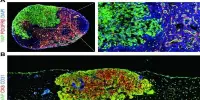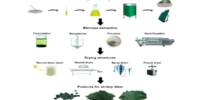Increasing the immune system’s memory against influenza is an important area of research in immunology and vaccine development. The flu, often known as influenza, is a highly contagious respiratory infection caused by influenza viruses. The viruses can mutate quickly, resulting in seasonal epidemics and, on rare occasions, pandemics.
Researchers are one step closer to strengthening the T cell army. Researchers discovered that by modulating one biochemical signaling pathway in T cells that help eliminate influenza virus from the lungs, the strength and endurance of immunological memory established can be increased.
When humans or animals become sick, the immune system attempts to not only eliminate the infection but also to establish a memory of the pathogen that caused it. As a result, when the pathogen resurfaces for probable reinfection, the body has an army of memory T cells ready to recognize and fight it. These T cells are an essential component of immunological memory and an essential component of effective vaccinations.
By revealing the biochemical and molecular secrets of these T cells, we can provide valuable information to other scientists working on optimizing vaccine strategies. The good news is that there are already clinical treatments that target the pathway we identified, so this study is a big step in the right direction, but there is still a long way to go.
Emma Teixeiro
Researchers at the University of Missouri are now one step closer to strengthening the T cell army. Researchers discovered that by manipulating one molecular signaling pathway in T cells that participate in clearing influenza virus in the lungs, the strength and longevity of immunological memory produced can be improved in a recent study conducted in the Roy Blunt NextGen Precision Health building.
This discovery could pave the way for the future development of more effective vaccines and therapeutics to combat influenza and other respiratory infections, with the ultimate goal of increasing the body’s immunological memory, which can both prevent and mitigate the severity of infections and reinfections.
Emma Teixeiro and Mark A. Daniels, associate professors in the MU School of Medicine, led the NIH-funded study, which involved unique mouse models of influenza infection.

“Immunologists like myself have always wondered why T cells in the lungs after influenza infection disappear so quickly,” Teixeiro said. “This research can help us solve that problem by increasing the amount of T cells that can fight against infection. In this study, we have identified novel ways to improve the generation and long-term maintenance of protective immunity against influenza, and that is by manipulating a molecular target known as the IKK2/NFkB signaling pathway.”
Teixeiro went on to say that T cells can recognize parts of viruses that do not mutate, so if researchers can better understand how to strengthen T cells and extend the timeframe when they can do their job properly, the body’s immune system will be better suited to fight infection and lessen its severity.
While the influenza virus was the focus of this work, understanding the underlying molecular mechanisms and signaling pathways that modulate memory in tissues can assist enhance therapies for patients with cancer, autoimmunity, or other respiratory infections.
“By revealing the biochemical and molecular secrets of these T cells, we can provide valuable information to other scientists working on optimizing vaccine strategies,” Teixeiro added. “The good news is that there are already clinical treatments that target the pathway we identified, so this study is a big step in the right direction, but there is still a long way to go.”
















